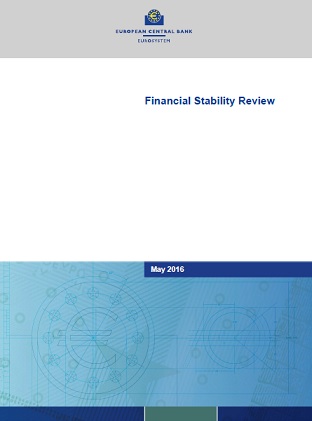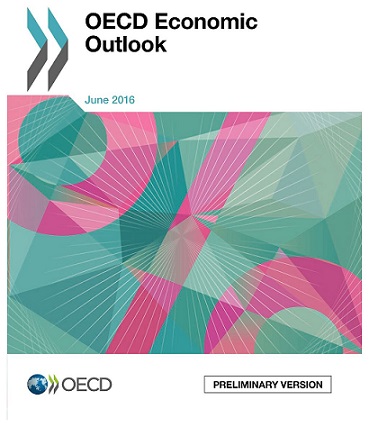Regis Barnichon, Paula Garda, (2016), “Forecasting unemployment across countries: The ins and outs”, European Economic Review, Volume 84, Μάϊος This paper evaluates the flow approach to unemployment forecasting proposed by Barnichon and Nekarda (2012) for a set of OECD countries characterized by very different labor markets. We find that the flow approach yields substantial improvements in forecast accuracy over professional forecasts for all countries, with especially large improvements at longer horizons (one-year …Read More
State aid, bail-in, and systemic financial stability in the EU
Stefano Micossi, Ginevra Bruzzone, Miriam Cassella, (2016), “State aid, bail-in, and systemic financial stability in the EU”, Voxeu, 6 June Following the financial crisis, the EU banking system is still plagued by widespread fragilities. This column considers the tools and legal provisions available to EU policymakers to address moral hazard and incentives encouraging excessive risk-taking by bankers. It argues that the new discipline of state aid and the restructuring of …Read More
The European Central Bank’s QE: A new hope
Tomasz Wieladek, (2016),“The European Central Bank’s QE: A new hope”, CEPR DP 11309, June Estimated on monthly data from 2012M6 to 2016M4. We assess the total impact via a counter-factual exercise, country-by-country and through alternative transmission channels. QE anouncement shocks are identified with four different identification schemes as in Weale and Wieladek (2016). We find that in absence of the first round of ECB QE, real GDP and core CPI …Read More
The role of social trust in building corporate resilience to systemic banking crises
Ross Levine, Chen Lin, Wensi Xie, (2016), “The role of social trust in building corporate resilience to systemic banking crises”, Voxeu, 3 June Although banking crises are costly, common, and heavily researched (e.g. Reinhardt and Rogoff 2009, Laeven 2011), there is surprisingly little research on corporate resilience to systemic banking crises. While almost all countries experience crises, corporations in different countries and industries respond very differently to those crises. In …Read More
Determinants of euro-denominated corporate bond spreads
Elizaveta Krylova, (2016), “Determinants of euro-denominated corporate bond spreads”, ECB Working Paper 1912, June 2016 This paper computes time-varying indicators of the relative importance of different credit spread determinants, including rating, sector and country attribution as well as the coupon rate, maturity and liquidity on the basis of the comprehensive dataset of individual bonds. Additionally, it decomposes variances of rating-specific (country- and sector-specific) spread indices into the impacts of explanatory variables. …Read More
Can Minimum Wages Raise Workers’ Incomes in the Long Run
George Economides, Thomas Moutos, (2016), “Can Minimum Wages Raise Workers’ Incomes in the Long Run”, CESifo Working Paper No. 5913, May 2016 Using an intertemporal model of saving and capital accumulation with two types of agents (workers and capitalists) we demonstrate that it is impossible for any binding minimum wage to increase the after-tax incomes of workers if the production function is Cobb-Douglas with constant returns to scale, or if there …Read More
Financial Stability Review
European Central Bank, (2016), “Financial Stability Review”, ECB, May The Financial Stability Review (FSR) assesses developments relevant for financial stability, including identifying and prioritising the main sources of systemic risk and vulnerabilities for the euro area financial system – comprising intermediaries, markets and market infrastructures. It does so to promote awareness of these systemic risks among policymakers, the financial industry and the public at large, with the ultimate goal of …Read More
Survey on the Access to Finance of Enterprises in the euro area
European Central Bank, (2016), “Survey on the Access to Finance of Enterprises in the euro area”, ECB, June This report presents the main results of the 14th round of the Survey on the Access to Finance of Enterprises (SAFE), which was conducted between 10 March and 21 April 2016. The total euro area sample size was 11,725 enterprises, of which 10,709 (91%) had fewer than 250 employees.1 The report mainly …Read More
Helicopter Money: A Disguise For Debt Financing Funded By Short-Term Borrowing
Kay, John, (2016), “Helicopter Money: A Disguise For Debt Financing Funded By Short-Term Borrowing”, Social Europe, 2 June The term “helicopter money” is derived from a vivid image created by the US economist Milton Friedman in which a central banker showers notes on a grateful populace. More recently, the notion has been promoted by Adair Turner, the former chairman of the UK financial regulator, in his book, Between Debt and the Devil. …Read More
OECD Economic Outlook
OECD, (2016), “OECD Economic Outlook”, OECD, Volume 2016 Issue 1, June The global economy is stuck in a low-growth trap that will require more coordinated and comprehensive use of fiscal, monetary and structural policies to move to a higher growth path and ensure that promises are kept to both young and old, according to the OECD’s latest Global Economic Outlook. “Growth is flat in the advanced economies and has slowed in many …Read More







